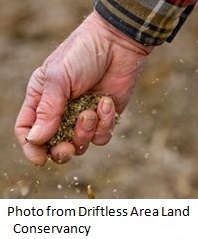
In this our seventh year, we are supporting thirteen projects in SW Wisconsin. We thank the Sinsinawa Dominicans, Wisconsin Farmers Union and our individual donors for funding our grants.
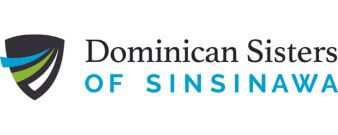

Descriptions of this year’s projects in Southwestern Wisconsin are listed in the first column. Descriptions of the 2023 and 2024 projects in Southeastern Wisconsin are listed in the second column.
To apply for Seed Money funding in 2026, see the requirements and application form here.
Our goal is to help build vibrant rural communities in Southwest Wisconsin with a focus on local foods, sustainable farming, and food security.
 Since its inception in 2021, Driftless Curiosity (DC) has been working hard to build community around organic farming, local food systems, healthy outdoor activities and meaningful connection with nature, culture, art and wellness. In 2025, the board of directors for DC, a 501c3 nonprofit organization, gave the green light for construction of a building to house DC’s numerous classes and events. Utilizing existing donated materials, as well as purchased building materials, DC’s volunteer crew will build a 32’x 36’ Clearspan building. This building will provide space for a range of sustainable farming topics, including making maple syrup, regenerative no-till gardening, raising sheep and goats, flower farming, beekeeping, permaculture, elderberry growing, supporting beneficial birds on farms and land conservation. https://driftlesscuriosity.org/
Since its inception in 2021, Driftless Curiosity (DC) has been working hard to build community around organic farming, local food systems, healthy outdoor activities and meaningful connection with nature, culture, art and wellness. In 2025, the board of directors for DC, a 501c3 nonprofit organization, gave the green light for construction of a building to house DC’s numerous classes and events. Utilizing existing donated materials, as well as purchased building materials, DC’s volunteer crew will build a 32’x 36’ Clearspan building. This building will provide space for a range of sustainable farming topics, including making maple syrup, regenerative no-till gardening, raising sheep and goats, flower farming, beekeeping, permaculture, elderberry growing, supporting beneficial birds on farms and land conservation. https://driftlesscuriosity.org/
 A new farmer-led learning center based in southwest Wisconsin, Fields of Sinsinawa seeks to inspire the informed adoption of holistic soil care practices through collaborative learning, field-scale demonstrations, and meaningful community connections. We believe that more resilient farming systems ensure consistent and healthy food production and a healthier planet.
A new farmer-led learning center based in southwest Wisconsin, Fields of Sinsinawa seeks to inspire the informed adoption of holistic soil care practices through collaborative learning, field-scale demonstrations, and meaningful community connections. We believe that more resilient farming systems ensure consistent and healthy food production and a healthier planet.
For our Building Healthy Soil Field Demonstrations program, Fields of Sinsinawa is hosting a series of field and/or classroom events in 2025. These events will convene farmers and other soil caretakers to learn about the importance of maintaining living roots in the soil, diversifying crop rotations, reducing tillage, protecting the soil surface, integrating livestock to boost soil organic matter and microbial life, and more. The Seed Money will be used to help cover the costs associated with hosting and promoting the events. https://fieldsofsinsinawa.org/projects-events/.
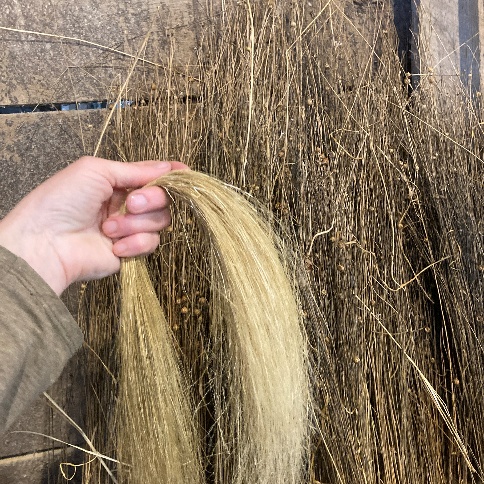 Midwest Linen Revival is working to establish each of the elements for a flax to linen textile system in our bioregion. Starting where it always starts, with the seed, our project supported by the Food Faith and Farming grant forwards our previous efforts laying the groundwork for developing a Midwest specific climate change resilient high quality fiber flax seed. This is a long-range project! The grant we received from FF&F will be dedicated to tending this year’s seed increase and, importantly, to funding the cost of having select plant fibers from this year’s crop sent to a lab capable of providing us with critical insight on the characteristics and quality of the fiber from them. https://www.wisconsinlinenrevival.org/
Midwest Linen Revival is working to establish each of the elements for a flax to linen textile system in our bioregion. Starting where it always starts, with the seed, our project supported by the Food Faith and Farming grant forwards our previous efforts laying the groundwork for developing a Midwest specific climate change resilient high quality fiber flax seed. This is a long-range project! The grant we received from FF&F will be dedicated to tending this year’s seed increase and, importantly, to funding the cost of having select plant fibers from this year’s crop sent to a lab capable of providing us with critical insight on the characteristics and quality of the fiber from them. https://www.wisconsinlinenrevival.org/
 Rural families with children who have ADHD face daily stress, challenges, ostracization, and prejudice in their community and schools. Families need to understand that one important tool to support their ADHD kids is knowing that food is medicine. That good, local organic food can help them heal and manage the hyperactive symptoms often brought on by poor nutrition and lack of sleep and exercise. The program will produce a local guide with resources and ways to support their ADHD kids. The guide will be given out in the community and at an expert panel presentation featuring a healthcare professional, nutritionist, organic food grower, and ADHD education IEP/504 expert. After the session, parents will be encouraged to sign up for a monthly Parents with ADHD Kids Support Group hosted by their local faith community. This support group will help parents help each other by sharing their sometimes frustrating journey while navigating how to get affordable healthy local foods, educational resources, IEP/504 guidance, and emotional support. Child advocates and guest speaker experts will be invited to present to the group to continue to build parents’ toolbox of resources, kid-friendly recipes, and information.
Rural families with children who have ADHD face daily stress, challenges, ostracization, and prejudice in their community and schools. Families need to understand that one important tool to support their ADHD kids is knowing that food is medicine. That good, local organic food can help them heal and manage the hyperactive symptoms often brought on by poor nutrition and lack of sleep and exercise. The program will produce a local guide with resources and ways to support their ADHD kids. The guide will be given out in the community and at an expert panel presentation featuring a healthcare professional, nutritionist, organic food grower, and ADHD education IEP/504 expert. After the session, parents will be encouraged to sign up for a monthly Parents with ADHD Kids Support Group hosted by their local faith community. This support group will help parents help each other by sharing their sometimes frustrating journey while navigating how to get affordable healthy local foods, educational resources, IEP/504 guidance, and emotional support. Child advocates and guest speaker experts will be invited to present to the group to continue to build parents’ toolbox of resources, kid-friendly recipes, and information.
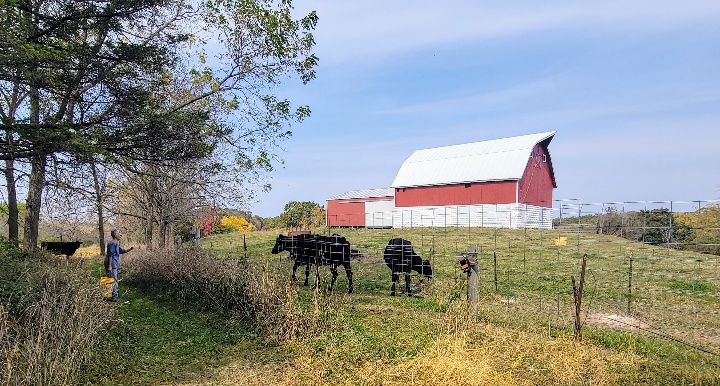 The Hubbard Hills Heritage Conservation Area Project is a community-based initiative started in 2024 in Viroqua, SW WI, to increase climate resilience, agricultural sustainability and biodiversity. Project activities include establishing prairie plantings, restoring savanna habitat, implementing bird friendly haying and grazing techniques, and conducting bird and pollinator surveys on the 42-acre Hubbard family property, that features a trail system open to the public.
The Hubbard Hills Heritage Conservation Area Project is a community-based initiative started in 2024 in Viroqua, SW WI, to increase climate resilience, agricultural sustainability and biodiversity. Project activities include establishing prairie plantings, restoring savanna habitat, implementing bird friendly haying and grazing techniques, and conducting bird and pollinator surveys on the 42-acre Hubbard family property, that features a trail system open to the public.
This project is coordinated by local nonprofit, Valley Stewardship Network, hosted by the Hubbard family and will engage a diverse network of community members, farmers, landowners, conservation organizations, volunteers, and natural resource professionals. Public access for education and recreation will be enhanced through hands-on planting opportunities, educational events, and a conservation education walking trail. https://valleystewardshipnetwork.org/
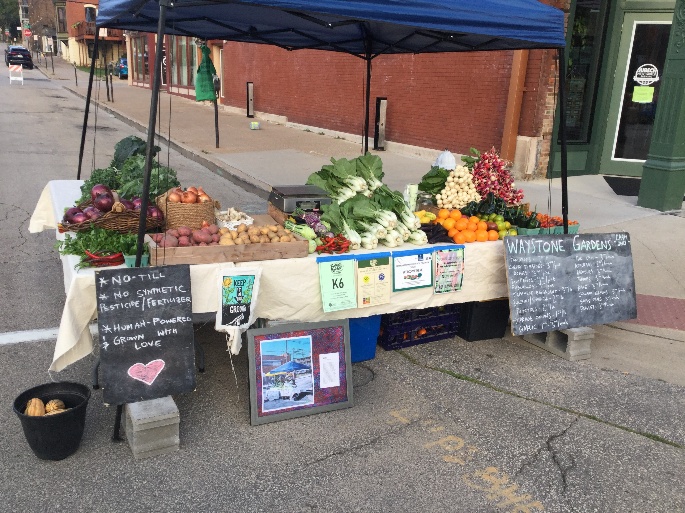 Little Platte Catholic Worker Farm is a new intentional faith community living on the historical land of the Ho-Chunk and Sac & Fox (Meskwaki) near Platteville, Wisconsin. The farm aims to model the justice and charity of Jesus Christ by offering service and programming around regenerative agriculture, nonviolence, decolonization, spirituality, and land-based craftwork. Seed money will go towards the construction of a timber-framed, commercial glass greenhouse to be used for growing transplants, furthering our mission to eliminate all fossil fuels and plastics from our vegetable production. https://bio.site/littleplatte
Little Platte Catholic Worker Farm is a new intentional faith community living on the historical land of the Ho-Chunk and Sac & Fox (Meskwaki) near Platteville, Wisconsin. The farm aims to model the justice and charity of Jesus Christ by offering service and programming around regenerative agriculture, nonviolence, decolonization, spirituality, and land-based craftwork. Seed money will go towards the construction of a timber-framed, commercial glass greenhouse to be used for growing transplants, furthering our mission to eliminate all fossil fuels and plastics from our vegetable production. https://bio.site/littleplatte
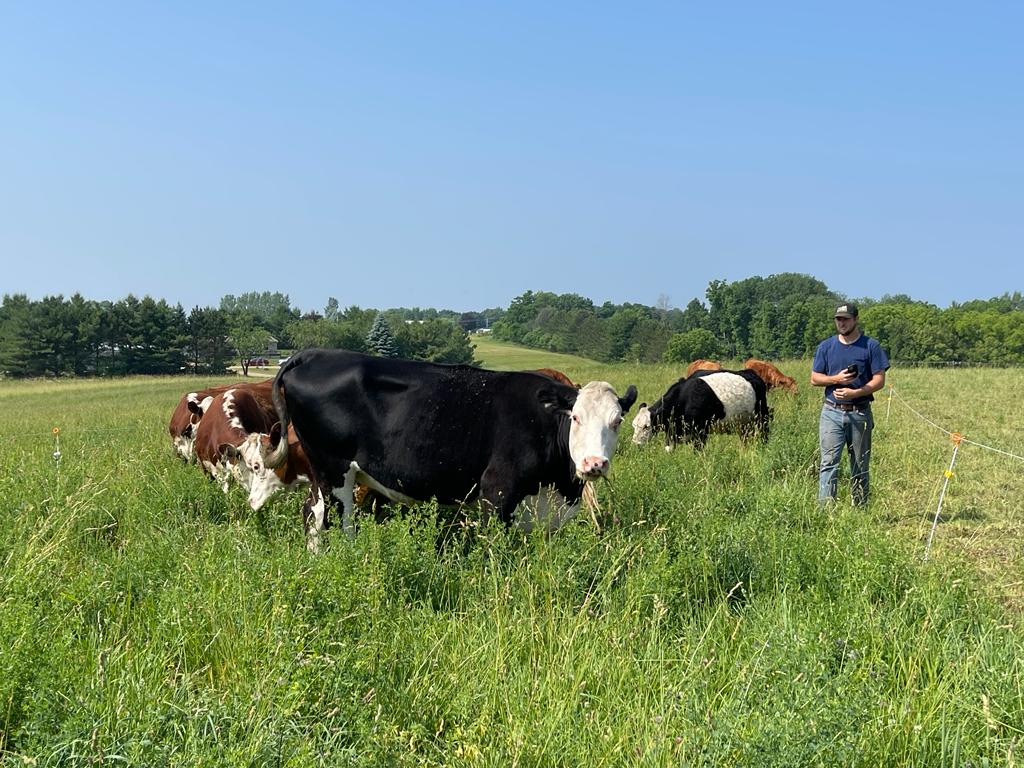 Crawford Stewardship Project, alongside Boscobel School, Natural Resource Conservation Service, and Mississippi Valley Conservancy are introducing a new grazing education program to a Southwest Wisconsin school. Boscobel School officially accepted the program plan during the February 2025 school board meeting. The “Mark Trumm Legacy Rotational Grazing Program” will utilize 9 acres of grassland located at the Paul Brandt School Forest. The land will be fenced off according to an NRCS grazing plan and the small herd of cattle will be rotated through the pastures throughout the grazing season, allowing students and staff to get a hands-on look at the positive impacts that well-managed grazing has on the landscape. Seed Money funding will help make this project feasible. https://www.crawfordstewardship.org/.
Crawford Stewardship Project, alongside Boscobel School, Natural Resource Conservation Service, and Mississippi Valley Conservancy are introducing a new grazing education program to a Southwest Wisconsin school. Boscobel School officially accepted the program plan during the February 2025 school board meeting. The “Mark Trumm Legacy Rotational Grazing Program” will utilize 9 acres of grassland located at the Paul Brandt School Forest. The land will be fenced off according to an NRCS grazing plan and the small herd of cattle will be rotated through the pastures throughout the grazing season, allowing students and staff to get a hands-on look at the positive impacts that well-managed grazing has on the landscape. Seed Money funding will help make this project feasible. https://www.crawfordstewardship.org/.
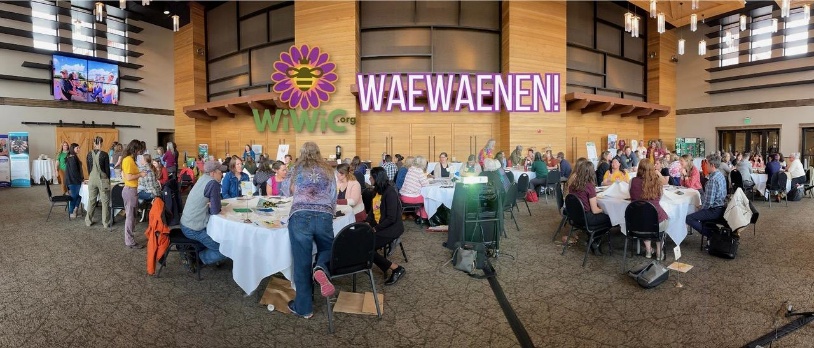
Wisconsin Women in Conservation is a program led by Michael Fields Agricultural Institute, and partnered by Renewing the Countryside, Wisconsin Farmers Union and Marbleseed. WiWiC will bring together their second gathering of Conservation Educators from across Wisconsin to Stevens Point on April 25th, 2025 to learn, network and aspire, This year’s special focus is on developing deeper connections between the diverse cultures and stakeholders nurturing Wisconsin’s landscape.
WiWiC serves the women landowners, farmers, non-operators, gardeners, beginning farmers and farm workers of Wisconsin, and conducts many in-person events in the SW counties of Dane, Green, Iowa, Lafayette, Grant, Sauk, Crawford, Vernon, and Richland. Participants will leave the conference with a “reflect and respond” session with the learnings from the conference. The educators from the southwest counties of Wisconsin will benefit from the networking and skill support shared at the conference. https://www.wiwic.org/
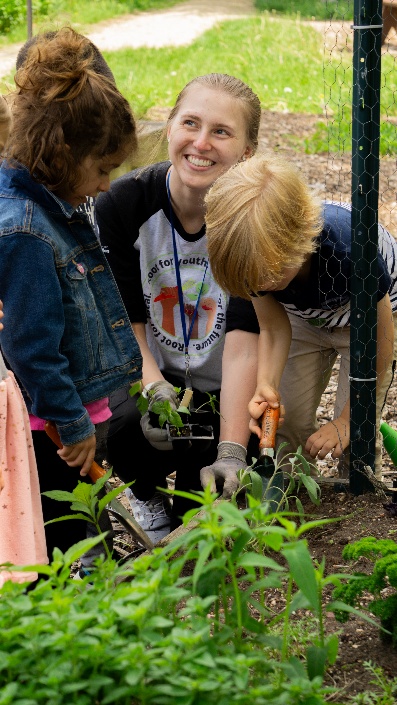
The Monona Grove School District’s Farm to School Program is launching their sustainability project, Food. Friends. Farm., in the upcoming school year to ensure students across the district continue to have Farm to School experiences beyond the AmeriCorps WI Farm to School Program. This project will consist of building resources, curriculum, and relationships, both district-wide and in the community, to provide PreK-12 students with hands-on learning opportunities. These hands-on learning opportunities consist of nutrition, local agriculture, and school gardening both in the classroom & cafeteria. It will also provide students with more locally provided school menu items & scratch-made options by enhancing school nutrition staff food handling training & resources. Students will gain exposure to local menu items through monthly cafeteria taste testing. Our goal is that Farm to School activities will strengthen our school community's connection to where food comes from and deepen the appreciation for local agriculture. https://www.mononagrove.org/
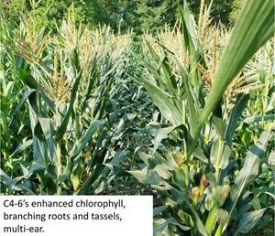 Time to Get the Word Out in Southwest Wisconsin! After nearly four decades of WI-based corn breeding using classical, not bioengineering methods, Mandaamin Institute (MI) has developed more nutritious and ecosystem-friendly corn varieties. Widespread embrace of MI corn for poultry diets could be a game-changer on a national/global scale. FFFN funds will be used to host lively spring and fall events that will introduce farmers and others to the “why,” the “what” and a bit of the “how” of MI’s high nutrition corn varieties (and the harms of the standard corn varieties) grown for animal feed. At the spring event, packets of MI seed will be gifted to farmers interested in trying out these better varieties, so long as they are comfortable providing feedback about “how things went.” The fall event will be held at a farm where MI corn is growing and will include a field walk. See mandaamin.org for background and lots of information.
Time to Get the Word Out in Southwest Wisconsin! After nearly four decades of WI-based corn breeding using classical, not bioengineering methods, Mandaamin Institute (MI) has developed more nutritious and ecosystem-friendly corn varieties. Widespread embrace of MI corn for poultry diets could be a game-changer on a national/global scale. FFFN funds will be used to host lively spring and fall events that will introduce farmers and others to the “why,” the “what” and a bit of the “how” of MI’s high nutrition corn varieties (and the harms of the standard corn varieties) grown for animal feed. At the spring event, packets of MI seed will be gifted to farmers interested in trying out these better varieties, so long as they are comfortable providing feedback about “how things went.” The fall event will be held at a farm where MI corn is growing and will include a field walk. See mandaamin.org for background and lots of information.
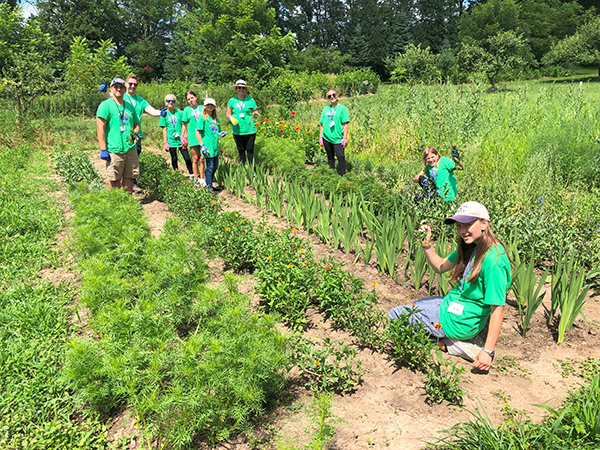 Many visitors to Holy Wisdom Monastery are hungry for both physical and spiritual nourishment; in the typical year their kitchen provides between 15,000 and 20,000 meals. In 2025, they expect to grow more than 1000 pounds of produce, substantially decreasing the amount of non-local produce purchased. Their harvest in 2025 will include leafy greens, root vegetables, squash, tomatoes, peppers and herbs. In this first year of renewed effort in the garden, they will focus on reliable, primarily direct-seeded crops that are regularly featured in the kitchen’s meals.
Many visitors to Holy Wisdom Monastery are hungry for both physical and spiritual nourishment; in the typical year their kitchen provides between 15,000 and 20,000 meals. In 2025, they expect to grow more than 1000 pounds of produce, substantially decreasing the amount of non-local produce purchased. Their harvest in 2025 will include leafy greens, root vegetables, squash, tomatoes, peppers and herbs. In this first year of renewed effort in the garden, they will focus on reliable, primarily direct-seeded crops that are regularly featured in the kitchen’s meals.
They will prioritize long-term sustainability of the garden by building soil health and a robust volunteer community. To build soil health, they will add biochar and organic fertilizer to the soil and use regenerative growing practices by nurturing cover crops and crop rotation. To sustain the garden workload, they will engage 50 or more community members and volunteers in garden tasks via semi-weekly garden shifts. Funds provided by this grant will reinvigorate the monastic garden. https://holywisdommonastery.org/
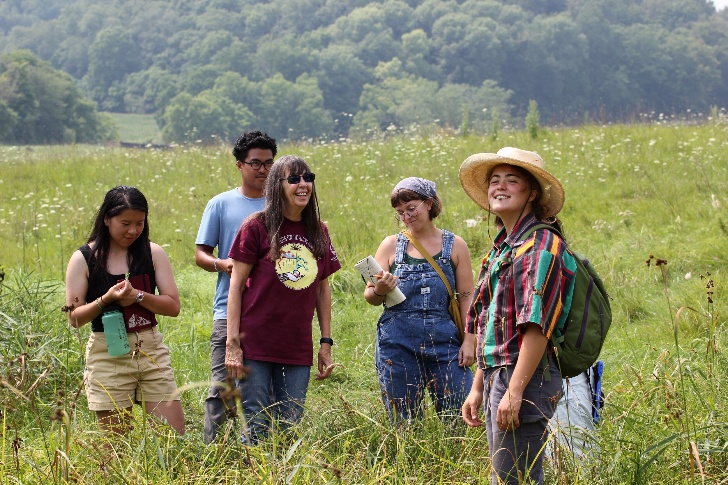 Since 2006, Thoreau College (TC) and Driftless Folk School (DFS) have operated with the Driftless region as its campus, hosting classes, workshops and community events at family farms, homesteads, rented community centers, artist studios, backyard gardens, living rooms and more. Now, the organizations are ready to put down new roots by establishing a land-based campus on seven acres of donated land just outside the city limits of Viroqua, WI. This campus will enable students to grow food, care for animals, live and study together and support their academic studies with tactile experiences in the world and with soil. Seed Money funds will be used for construction of an energy efficient greenhouse with an adjacent garden and tool shed to support the first phase of infrastructure for the campus and its educational offerings: summer/gap semester programs for college-aged young adults and day/weekend courses in folk arts, craft and homesteading for adults of all ages. https://thoreaucollege.org/
Since 2006, Thoreau College (TC) and Driftless Folk School (DFS) have operated with the Driftless region as its campus, hosting classes, workshops and community events at family farms, homesteads, rented community centers, artist studios, backyard gardens, living rooms and more. Now, the organizations are ready to put down new roots by establishing a land-based campus on seven acres of donated land just outside the city limits of Viroqua, WI. This campus will enable students to grow food, care for animals, live and study together and support their academic studies with tactile experiences in the world and with soil. Seed Money funds will be used for construction of an energy efficient greenhouse with an adjacent garden and tool shed to support the first phase of infrastructure for the campus and its educational offerings: summer/gap semester programs for college-aged young adults and day/weekend courses in folk arts, craft and homesteading for adults of all ages. https://thoreaucollege.org/
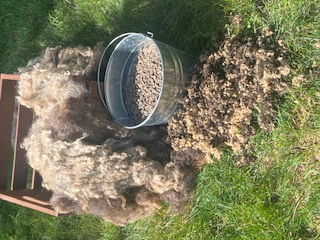 Woollets is a women founded, owned and operated small business located just outside of Argyle, WI. Their mission is to foster resilient food systems, revive the Midwestern wool market, and scale a sustainable alternative to carbon-intensive and synthetic fertilizers through the use of waste wool. Woollets pays Wisconsin shepherds a fair price for raw waste wool and then heat-pelletizes it to create Woollets wool pellets for the farm, home and garden. When added to the soil, Woollets increase resilience in the face of drought by holding up to thirty times their weight in water; they also help aerate the soil while building soil structure. Woollets feed the microbes in soil with a whopping nitrogen boost and the slow release of calcium, magnesium, potassium, iron and sulfur. Using Woollets reduces watering needs by 25% while also increasing crop yields. Seed Money funds will be used to replace the die and rollers in the pelleting machine and increase the production capacity of Woollets, thereby improving soil composition in Wisconsin. Visit their website here: https://www.woollets.net/
Woollets is a women founded, owned and operated small business located just outside of Argyle, WI. Their mission is to foster resilient food systems, revive the Midwestern wool market, and scale a sustainable alternative to carbon-intensive and synthetic fertilizers through the use of waste wool. Woollets pays Wisconsin shepherds a fair price for raw waste wool and then heat-pelletizes it to create Woollets wool pellets for the farm, home and garden. When added to the soil, Woollets increase resilience in the face of drought by holding up to thirty times their weight in water; they also help aerate the soil while building soil structure. Woollets feed the microbes in soil with a whopping nitrogen boost and the slow release of calcium, magnesium, potassium, iron and sulfur. Using Woollets reduces watering needs by 25% while also increasing crop yields. Seed Money funds will be used to replace the die and rollers in the pelleting machine and increase the production capacity of Woollets, thereby improving soil composition in Wisconsin. Visit their website here: https://www.woollets.net/
What a hope-filled celebration we had at our Seeds of Hope Celebration on November 4 at Taliesen! Our Seed Money recipients outdid themselves with wonderful slides and presentations. The room was abuzz from the minute people arrived to their final farewells - all reconnecting with friends and eager to connect with new faces. We basked in the energy that comes when surrounded by like-minds, all united by their love of the earth and its people. The occasion was exactly what our logo states “Connecting Community, Land and People”. The Dominican Sisters of Sinsinawa can rejoice that we gave witness to the intent of their mission when they founded Churches’ Center for Land and People in the 1980s.
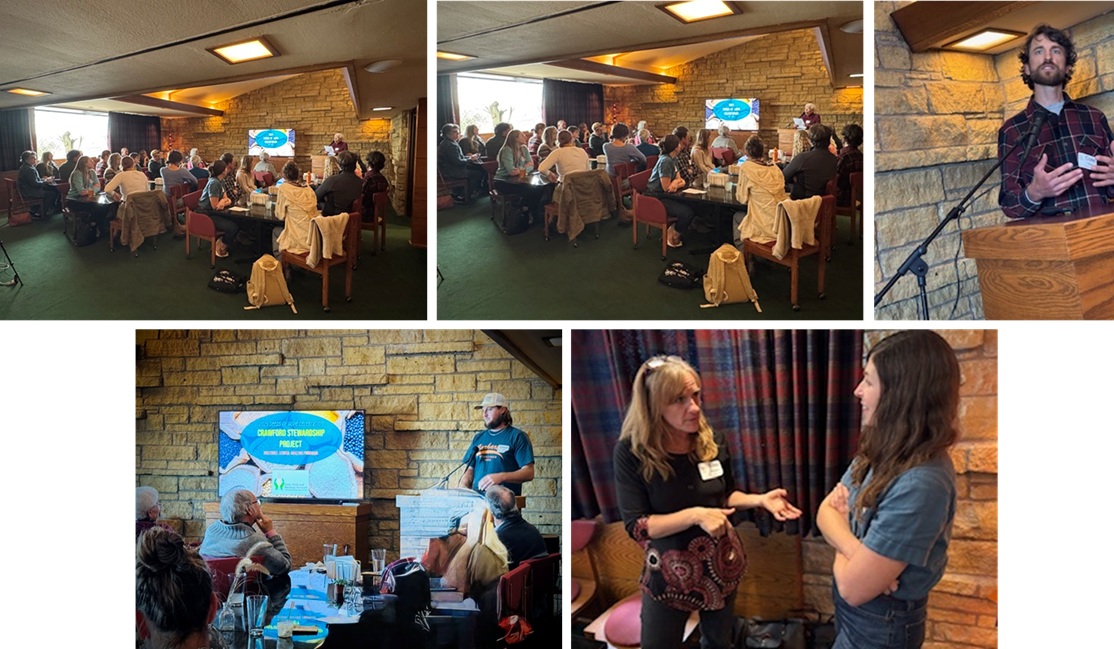
We thank our recipients for living their lives with purpose and a passion for rejuvenating the land and its people. Check out the video of the Celebration here. See more information on the video here.
Our goal for Southeastern Wisconsin Seed Money projects is to help build strong rural/urban connections through education and promotion of local foods, sustainable farming practices and efforts to combat food insecurity.
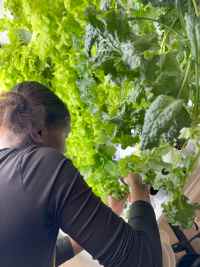
The mission of Embedded Agriculture is to provide students with the knowledge and skills to lead healthy and sustainable lifestyles through a robust partnership between SDW’s Environmental Education program and Family and Consumer Science program. The program offers hands-on gardening and farming experiences that promote environmental stewardship, while also integrating farm-to-table education into the school curriculum. We are committed to promoting food justice and providing equitable access to fresh, locally-grown produce for all students. Our goal is to inspire a lifelong appreciation for healthy eating habits, sustainable food systems, and community involvement. Read more about SDW's program here.
The Journey Disaster Response Team in Kenosha hosts food events in partnership with local organizations in food insecure neighborhoods to hand out boxed food. These events are held several times a month to fill the gap in already existing services. Each guest leaves with approximately 30 pounds of fresh, frozen, and canned goods in addition to household supplies. The events offer the opportunity to provide peer support and foster trusting relationships. The funds received will be used for much needed supplies to maintain and expand their reach. Please visit the Journey Disaster Response Team Website
Full Circle Healing Farm is committed to addressing food injustice in their community by providing access to healthy food to people of color and those living below the poverty line. They provide opportunities for individuals, school groups, youth, and adults to learn how to grow their own food. Participants experience how to start from seed and take plants to grow in their own locations. Full Circle also donates the food they grow on their farm to local organizations that distribute food to those in need. Funding for compost, seedlings, seeds, and tools will enable them to produce more on their land and share their harvest with their community. Visit them on Facebook and Instagram.
The Catholic Ecology Center is thrilled to offer a second season of their Growing Gardens Together Program. Utilizing the Center’s facilities and Clare Gardens Organic Farm on-site, they will teach a series of 3 programs open to the public throughout the 2024 growing season. They will focus on how sustainable growing practices can be applied to personal and local settings. New program topics for this year are Saturday, May 4th Gardening Basics: Prepping and Planting; Saturday, July 6th, The Garden Ecosystem: Working Within the Greater Context; and Saturday, Sept 7th, Composting: Vermicomposting Focus. Open to all ages and experience levels. https://catholicecologycenter.org
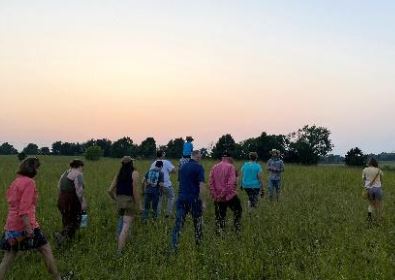
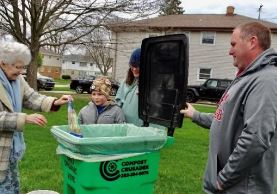
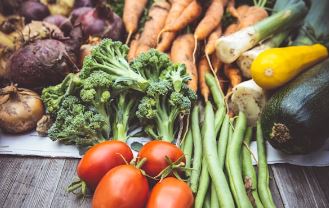
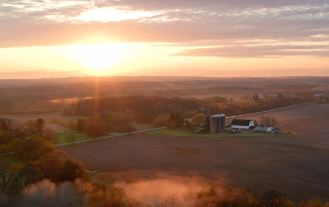
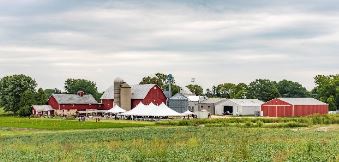
Tikkkun Ha-ir (Hebrew for “Repair the City”) of Milwaukee (THI) is a Jewish social justice organization committed to food justice. THI’s Veggie Chop Shop (VCS) is a community meal program that utilizes gleaned produce to prepare healthy vegetable-based meals for those struggling to access healthy food. The meals are distributed to vulnerable populations as well as Early Childhood Education Centers. The program has steadily grown since its inception 8 years ago. Meals are prepared at All People’s Lutheran Church, a longtime Milwaukee food justice hub that continues to serve people of the Harambee neighborhood, using a multifaith perspective to serve God and the community. As VSC continues to expand they will benefit from funding that will help them hire a summer intern. https://thi-milwaukee.org
We thank an anonymous donor for making it possible for us to support our 2024 projects in Southeastern Wisconsin.
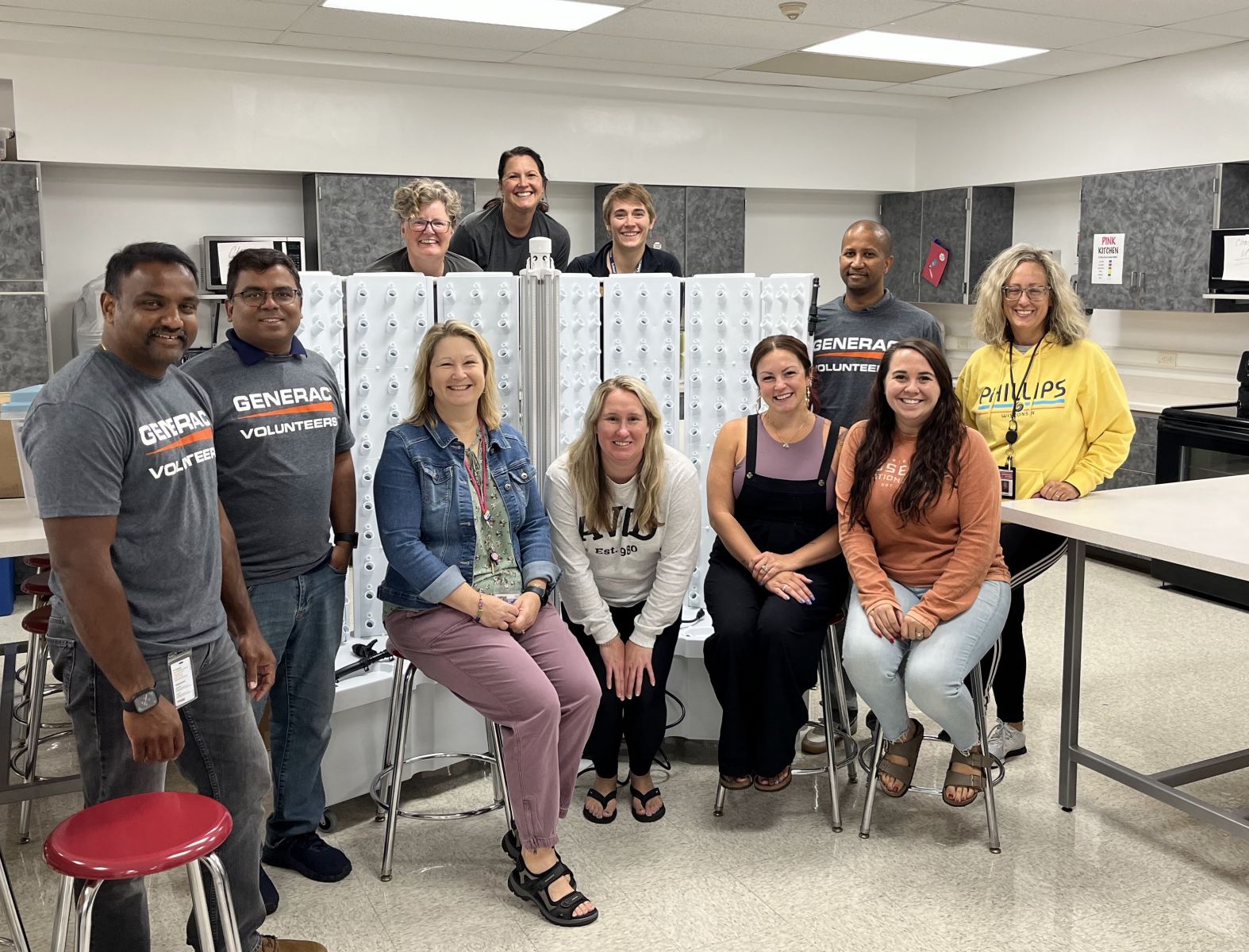
The School District of Waukesha's Environmental Education Program, in partnership with our Family and Consumer Science culinary classes, will be purchasing sustainable indoor garden systems for all three high schools; providing direct coaching support for the classroom teachers on sustainable growing and gardening; and building community connections with other local farms, master gardeners, and restaurants. The ultimate goal is that this is not only ecologically sustainable, but financially sustainable for our schools and community.
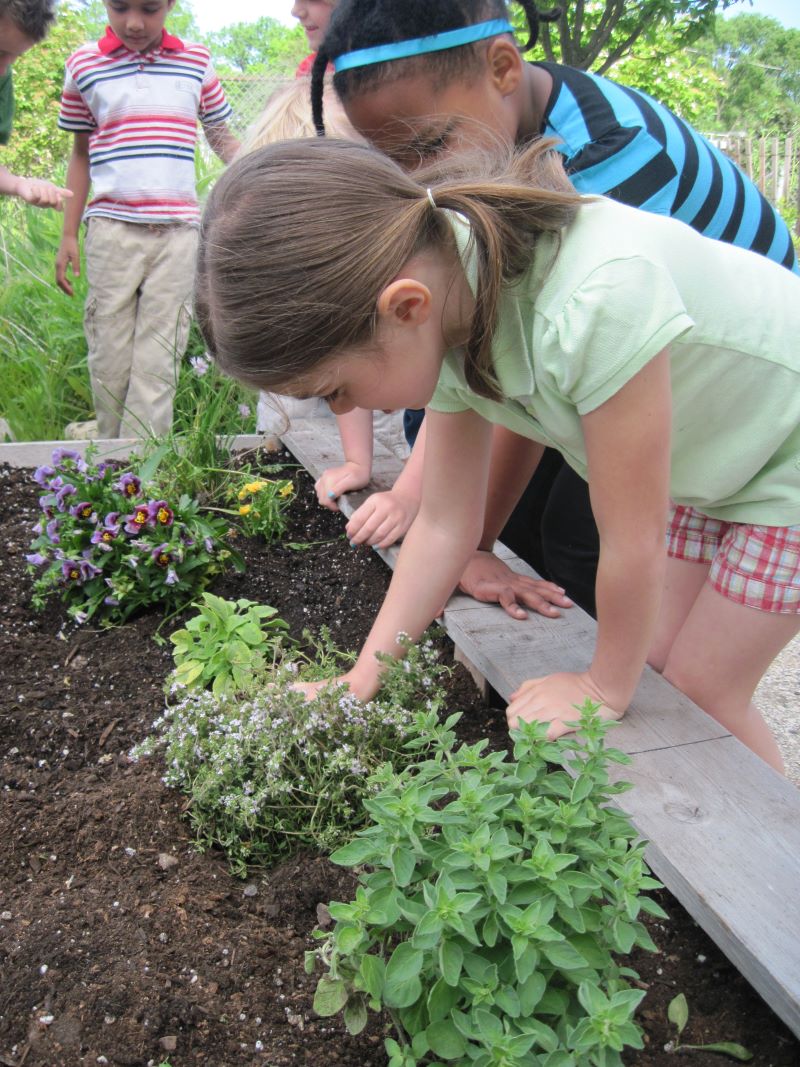 Foodright Learning Gardens
Foodright Learning GardensFoodRight is building edible gardens at the youth-based organization, New Beginnings Are Possible (NBAP). Working with NBAP’s summer camp program, the gardens will serve as the site for fun, hands-on garden-based nutrition education programming, addressing the lack of access to fresh foods for low-income youth in Milwaukee while fostering appreciation for the land and the work of farmers. The gardens will also serve as a test site for developing viable school gardens. https://www.foodright.org
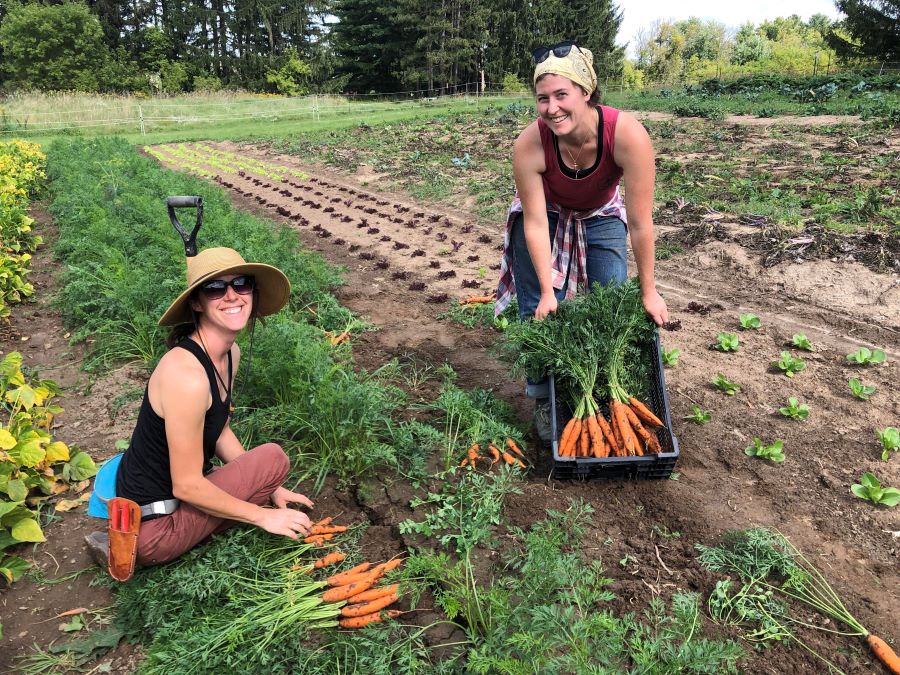
Utilizing the Catholic Ecology Center facilities and Clare Gardens Organic Farm on-site, we will teach a series of 3 programs open to the public throughout the 2023 growing/harvest season. We will focus on sustainable growing practices and how to do this in your personal and local settings. This includes how to farm organically at any scale and how to compost food waste. The programs will take place on Saturday May 6, Saturday, July 22 and Saturday Sept 9, capitalizing on the key times for preparing/planting, maintaining/harvesting and harvesting/Fall prep. Open to all ages and experience levels. https://catholicecologycenter.org
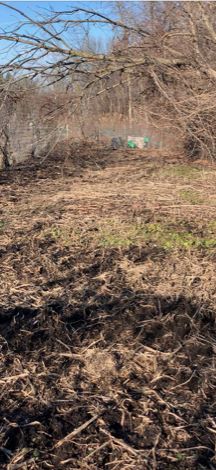
Riveredge’s mission is to support conservation through education that awakens curiosity, engages the body, and explores connections to nature for all generations. In 2022, we launched Growing Green as part of our mission to provide education supporting nature-rich lifestyles, promoting regenerative actions in alignment with community needs and the land. Through this series, we host educational programs and service-learning opportunities. These include native landscape design classes, soil health and composting classes, seasonal herb walks, shiitake mushroom inoculation workshop, and tours of local farms, among others. We welcome our community to learn through earth-minded interactions with native and edible landscapes. https://www.riveredgenaturecenter.org
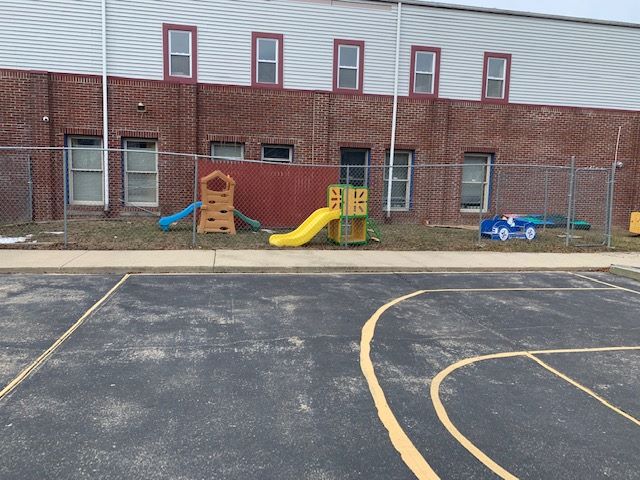
Growing Green Gardens Network is building upon our 2022 project, Let’s Get Growing. We will expand access to urban farmers and work to build relationships between rural producers and Milwaukee communities facing food insecurities. In our teaching gardens, youth and adults participate in hands-on farming/gardening and conservation education. They will be able to grow healthy foods of cultural relevance with the assistance of skilled gardeners. With our community partners, Alice’s Garden Urban Farm, Fondy Food Market, UW Extension, Five Star Educational Training Center and Lynn Precious Moments Childcare, GGGN will expand our outdoor classrooms in Milwaukee County from 1 to 3. Our partner, Five Star Community Resource Center, has graciously provided GGGN with an indoor classroom, in addition to outdoor garden space where food will be grown for community donation. Neema Therapy has partnered with us offering Art Therapy in the garden. We are looking forward to what the 2023 growing season delivers in Milwaukee. Healthy food, healthy bodies, healthy minds, healthy land, and healthy relationships are ahead. Let’s Get Growing! Growinggreengarderns.inc@gmail.com
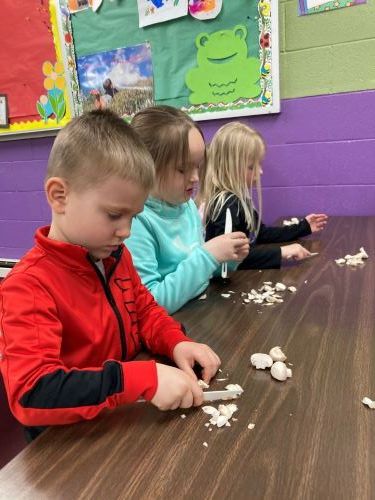
Nourish Farm's Good Food Club program, in partnership with the Sheboygan Falls School District, offers experiential education to students that weaves together important life skills and core standards of education such as math, science, biology, literacy, social studies, and health with the simple act of eating. Specifically, Good Food Club will teach kids how to plant, harvest, cook, and eat whole foods. Through Good Food Club students, parents, and teachers alike receive education regarding local food systems and producers and the benefits of eating locally grown, seasonal food. https://nourishfarms.org/farm-to-school
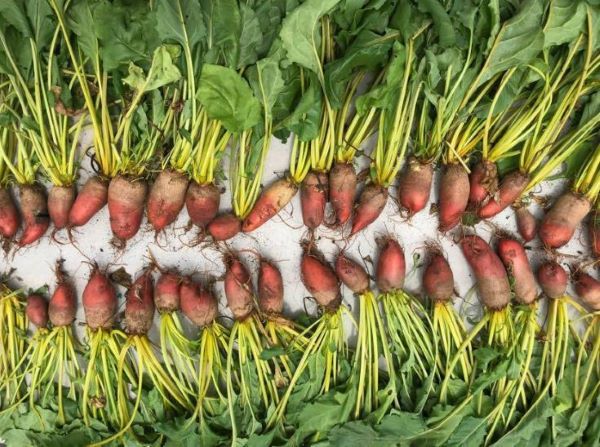
The Eco-Justice Center is an environmental education center and organic farm in northern Racine County. Eco-J’s Farm Corps Program currently donates at least 30% of the yearly harvest to the North Side Food Pantry and will work to form relationships with additional local organizations. In addition to donating to new partners, the program seeks to help food insecurity through the following: growing food, educating interns regarding food insecurity, decreasing our food waste, and educating consumers about the donated produce. https://ecojusticecenter.org/
REKO (pronounced wreak-o) is a Facebook-based pre-ordering system for local products, including farmed produce, meat, and other agricultural goods. The REKO ring will utilize the grant money to encourage growth and consumer participation in the group. First, we will create a streamlined graphic design branding toolkit to communicate with our consumers about deadlines, pick-up details, and to welcome new members. Second, we will also use the money to create a short video animation illustrating how the REKO ring works. This will help new consumers to quickly understand how the group works and jump right into placing an order with our local farmers. Thirdly, we hope to promote the group by awarding prizes to our consumers for their participation in our group during our anniversary month of May. https://www.foodforvictory.com/reko-ring
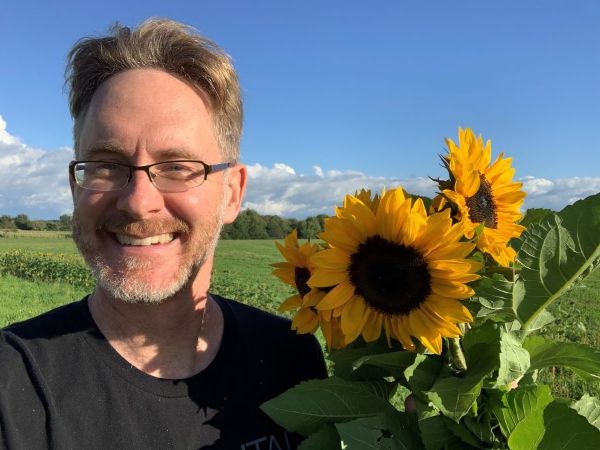
First started in 2020 as a collaboration between Tall Pines Conservancy (TPC) and Farmers for Lake Country (FFLC), the Chaos Garden program has connected community members with local area farmland and farmers with a “free pick” garden plot. Short-season vegetable crops are sown into a field following wheat harvest in August and include spinach, kale, bush beans, peas, lettuce and bok choy, as well as edible flowers. In keeping with the true spirit of “chaos gardening,” watering is performed by Mother Nature and whatever nature supports as its bounty is free for anyone to harvest. Thanks to generous support from the Food, Faith and Farming Network, the Chaos Garden will expand its size and outreach for 2023, providing fresh, healthy, and free food to the greater community. For updates and more information please visit https://tallpinesconservancy.org or https://farmersforlakecountry.org
Tricklebee Café is a pay-what-you-can community cafe in Milwaukee that offers healthy meals, food service training, and spiritual nourishment. This summer, we will hire inner city youth from our neighborhood to do "herbin" gardening. We'll fill our newly constructed garden bed and bus stop garden planter with soil, and then plant herbs from seed. The youth will then water, weed, and harvest the gardens throughout the growing season. In addition to harvesting the herbs to dry and use in our ever-changing cafe recipes, we will also give out organic seed packets to neighbors so they can grow their own herbs and vegetables. http://tricklebeecafe.org/
We thank Bader Philanthropies, Inc for their support of these projects and the Listening Sessions that preceded them.
